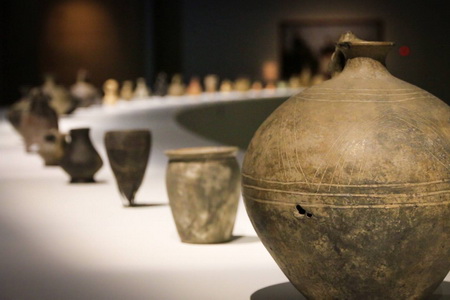Georgia’s winemaking discovery named a major finding of 2017

The finding of the world’s earliest traces of winemaking in Georgia is among the 10 major archaeological discoveries from around the world in 2017, according to the magazine of the Archaeological Institute of America.
The discovery, made in Georgia’s Kvemo Kartli province and announced late last year, was listed in the "World Roundup” for the organisation’s magazine Archaeology.
It sits in the list alongside major excavation works, genetic studies and reconstruction efforts that dealt with archaeological topics throughout 2017.
Chemical analyses of ceramic vessels from two Early Neolithic sites in Georgia produced the earliest known evidence of grape wine and viniculture in the Near East.”
This suggests humans were producing wine as far back as about 6000 B.C., nearly 500 years earlier than previously thought”, said the summary of the entry from the magazine.
The vessels were unearthed by archaeologists at the sites of Gadachrili Gora and Shulaveris Gora, in Georgia’s south. Experts of the Georgian National Museum have worked at the sites for decades.
The unearthing of ancient jars at the locations was followed by an analysis of grape seeds and traces of acid found on them, before scientists confirmed the residue to have been formed from wine.
This gave the discovery major historical importance, dating the remains 600 years earlier than previously known wine remains from Zagros Mountains in Iran.
Other findings selected for the Archaeology list include a new genetic and linguistic study revealing genetic traces to ancient Chachapoyas tribe among population living in Peru’s north, and underwater remains of the harbour of Lechaion of ancient Corinth in Greece. Tweet
Tweet  Share
Share